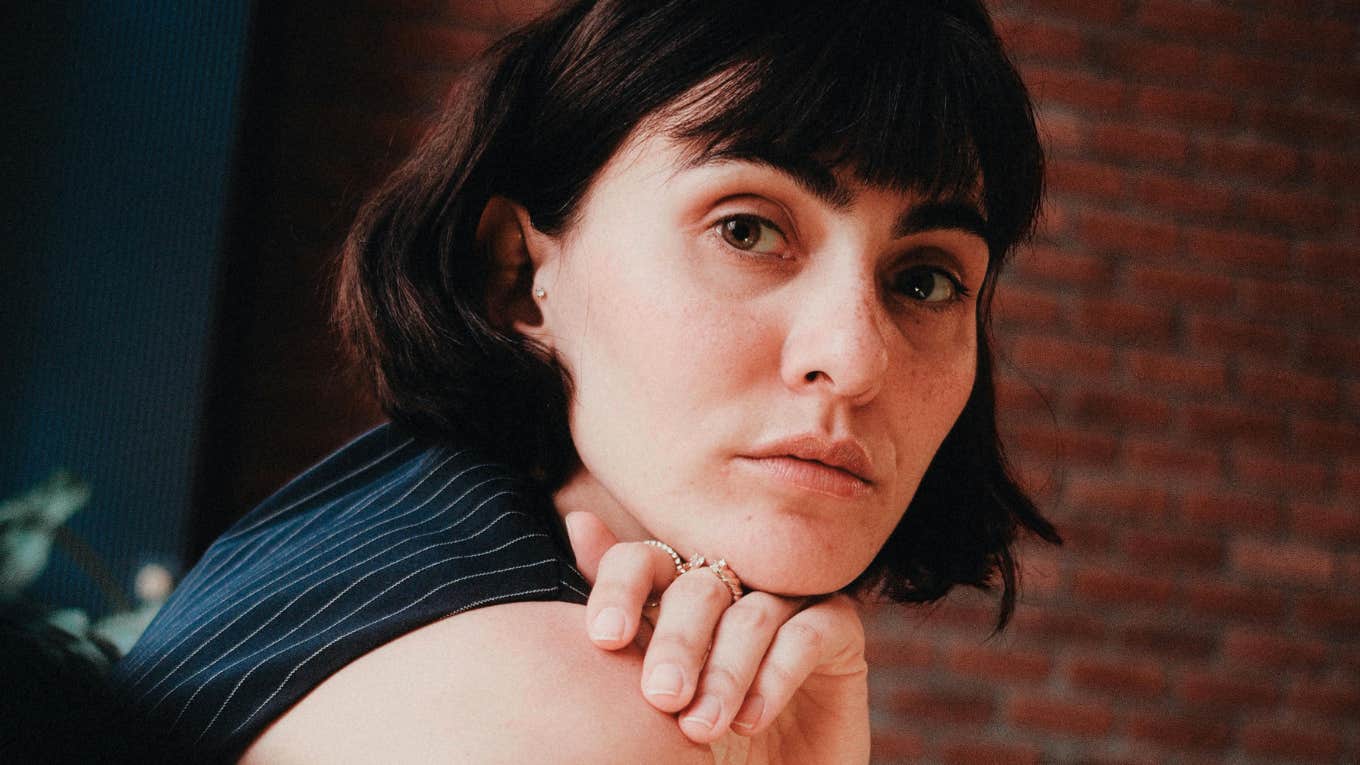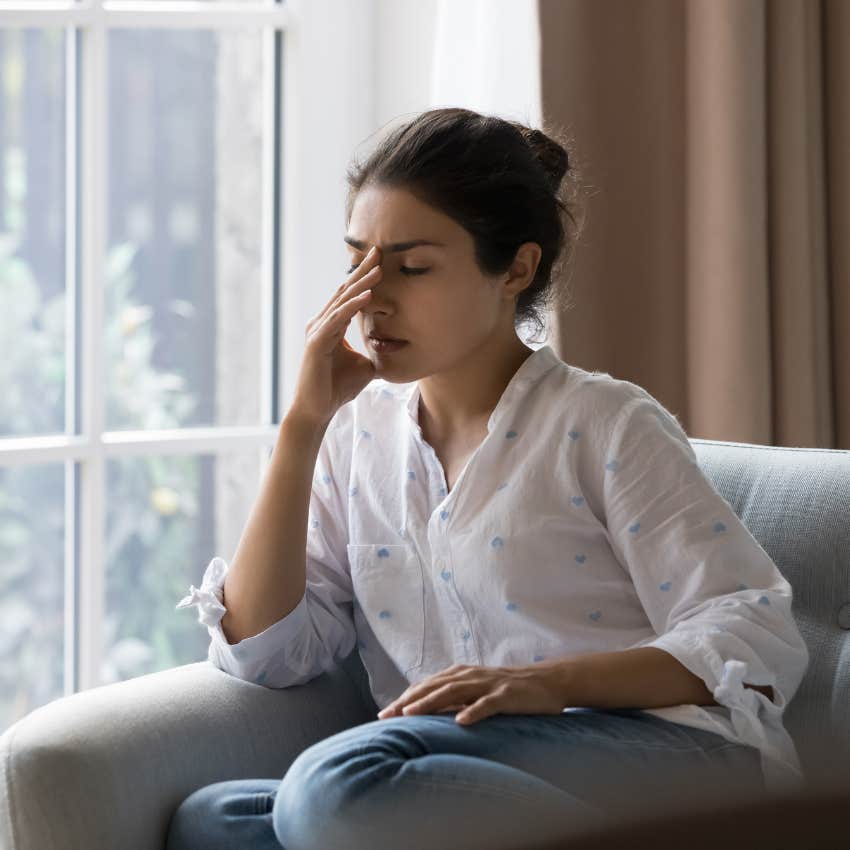Women Really Are More Anxious Than Men — But There's A Really Good Reason Why
Hint: It’s not hormones or hysteria.
 Mert Coşkun | Pexels
Mert Coşkun | Pexels If you’ve read my articles, you probably know I’m not a huge fan of the way doctors treat women — but it used to be a lot worse. Historically, physicians believed that our uteruses floated around our bodies, pressing on our organs and making us insane. Others blamed our toxic period blood, and men’s semen (which supposedly had “healing properties”) was the antidote.
Sigmund Freud thought women went nuts because they were distraught over not being men. (He conveniently overlooked the fact that many of his female patients were abused by family members as children.) Freud’s prescribed treatment? Be intimate with a man and give birth to baby boys.
Brilliant! Nothing says “scientific breakthrough” like yet another man who thinks the world revolves around them. As of 1980, “hysterical neurosis” is no longer a medically recognized diagnosis in the Diagnostic and Statistical Manual of Mental Disorders.
But people still find ample ways to call women crazy. Drama queen, hormonal, hot mess, unhinged, psycho ex-girlfriend, crazy cat lady, irrational, emotional, needy, clingy, moody, uptight, neurotic, the list goes on.
As a woman who’s healed from a dissociative disorder, I often write about women’s mental health. Without fail, a man (or several men) in my comments section simply must remind me that “Statistically, women are way more anxious than men” — as if that discredits all of our grievances.
Turns out, there's actually a really good reason women are more anxious than men.
 fizkes / Shutterstock
fizkes / Shutterstock
Women are 75% more likely to be physically attacked and 10 times more likely to be assaulted. Anxiety is the response — not the root cause.
Then there’s the matter of diagnoses. More women go to therapy than men. Women are twice as likely to seek out mental health treatment and twice as likely to consider psychiatric medications. So, is it any freaking surprise that women are twice as likely to be diagnosed with anxiety?
Newsflash: If you don’t go to the doctor to get a diagnosis, you are not going to be diagnosed. That doesn’t mean the issue doesn’t exist; it just means you’re ignoring it. And as I’ve said before, most men don’t actually suffer in silence. They externalize their pain one way or another, and more often than not, a woman is on the receiving end of it.
Up until recently, however, I couldn’t confirm why women were more likely to seek out help. Sure, I had my theories, but it’s so satisfying to hear your theories validated by a mental health professional. It’s even more satisfying when that mental health professional is a man who specializes in anxiety.
Why do women seem more anxious than men?
In her recent podcast episode, author and podcast host Mel Robbins asks Harvard Medical School psychologist and anxiety expert Dr. David Rosmarin, “Is there a difference between the way that women and men exhibit symptoms of anxiety?”
Dr. Rosmarin responded:
“Women have about twice as much clinical anxiety as men [because women] tend to be a lot harder on themselves and judge themselves for being anxious. […] If a guy’s feeling anxious, he’s like ‘Well, something’s wrong [outside of me], and there must be a reason.’ Women are more [likely to believe], ‘Something’s wrong with me.’”
In other words, women blame themselves and men blame others. This isn’t my opinion. This is a statistically and scientifically validated phenomenon, and it extends to every area of life, including education, career, parenting, and relationships.
When a male student fails a test, he attributes it to bad luck; when a female student fails a test, she assumes she lacks talent and intellect. When a man gets fired, he blames office politics and finds another job that pays just as much or more; when a woman gets fired, she blames herself and accepts a 35% salary cut.
When a child has behavioral issues, a mother is more likely to take responsibility, while a father is more likely to attribute it to the child’s personality. When men physically abuse women, their number-one cited reason is, “She made me do it.” When asked why they excused the abuse, many women respond, “I lost my temper, too. I think we’re both at fault.”
Sure, deflection has its benefits. It’s the reason why men apply to jobs they’re not qualified for, progress faster in their careers, and better maintain their egos after setbacks. But refusing to take accountability is also the kiss of death for relationships and happiness.
More men are single than ever before. They’ve deemed this crisis “the male loneliness epidemic,” and the blame is in the name. Instead of realizing they’re lonely because they refuse to work on themselves, many men are blaming the women who have finally decided they deserve better.
But single women are doing better than single men, despite higher levels of anxiety.
Compared to single men, single women now own more houses, earn more degrees, invest more wisely, have healthier platonic relationships, and are much more satisfied with their lives — yes, even despite higher recorded rates of anxiety.
It’s called the female happiness paradox, and I believe women are happier because they face their struggles head-on. Unlike many men, women are taking responsibility for their circumstances, emotions, and mental well-being, and you can’t fix what you won’t acknowledge.
If you or somebody you know is experiencing a mental health crisis, there is a way to get help. Call SAMHSA’s National Helpline at 1-800-662-HELP (4357) or text "HELLO" to 741741 to be connected with the Crisis Text Line.
Maria Cassano is a writer, editor, and journalist whose work has appeared on NBC, Bustle, CNN, The Daily Beast, Food & Wine, and Allure, among others.

